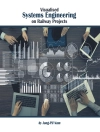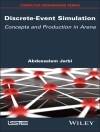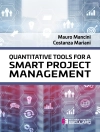The monetization of data is a very young topic, for which there are only very few case studies. There is a lack of strategy or concept that shows decision-makers the way into the monetization of data, especially those who have discovered or are threatened by the digital transformation or Industry 4.0. Because machine data is usually unstructured and not usable without domain knowledge/metadata, the monetization of machine data has an as yet unquantifiable potential. In order to make this potential tangible, this work describes not only contributions from science, but also practical examples from industry. Based on different examples from various industries, the reader can already become part of a future data economy today. Values and benefits are described in detail.
The translation was done with the help of artificial intelligence. A subsequent human revision was done primarily in terms of content.
Inhaltsverzeichnis
Monetization of data using the example of production machines: basics, challenges and potential.- Part I – Legal aspects of data monetization.- Part II – Business aspects of data monetization.- Part III – Information technology aspects of data monetization.- Part IV – Data monetization in the manufacturing industry.- Part V – Data Monetization in Energy Technology.- Part VI – Data Monetization in Other Emerging Application Fields.
Über den Autor
Dr. Daniel Trauth is a graduate engineer, has studied both mechanical engineering and economics and has successfully completed training as a mechatronics engineer. Daniel Trauth is a co-founder of senseering Gmb H, which was awarded the official RWTH Aachen Spin-Off Award in 2019.
Prof. Thomas Bergs has been managing director of the Fraunhofer IPT since 2001. On 1 June 2018, he was appointed professor at the Chair of Manufacturing Technology of Production Processes at the WZL of RWTH Aachen University and head of the Department of Process Technology at the Fraunhofer IPT. As successor to Professor Fritz Klocke, he is also a member of the board of directors of both production technology institutes.
Prof. Wolfgang Prinz, Ph D, studied computer science at the University of Bonn and received his doctorate from the University of Nottingham. Since 2001 he has been professor at RWTH Aachen University and, as deputydirector of the Fraunhofer FIT, heads the Department of Cooperative Systems. For some years now, Mr. Prinz has been dealing with the technical basics of blockchain and the development and analysis of blockchain-based applications within the framework of the Blockchain Lab of Fraunhofer FIT.












